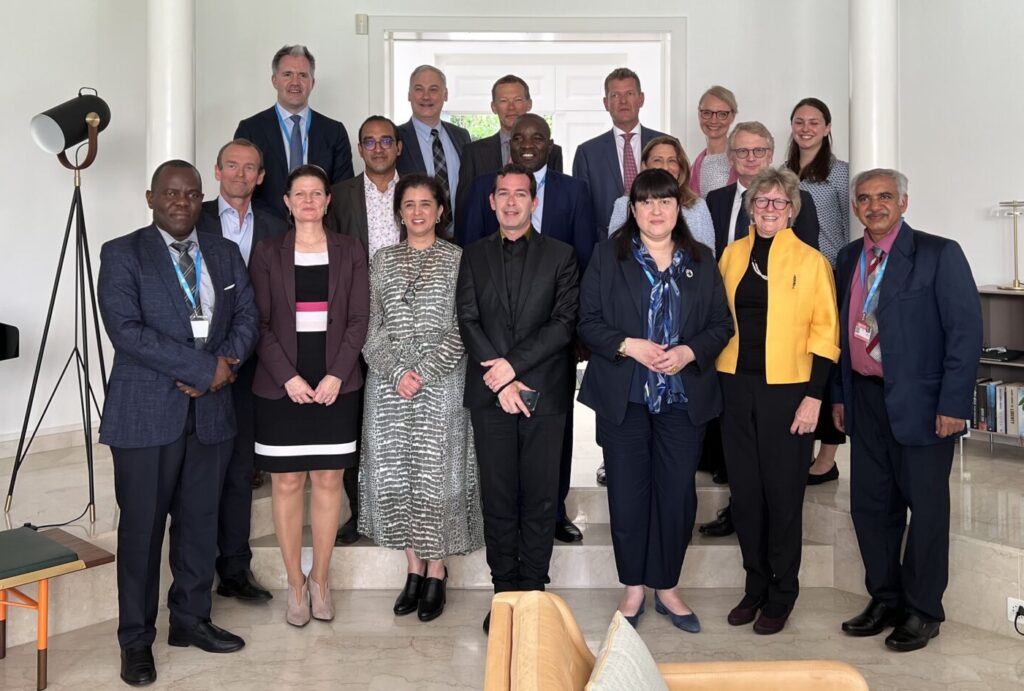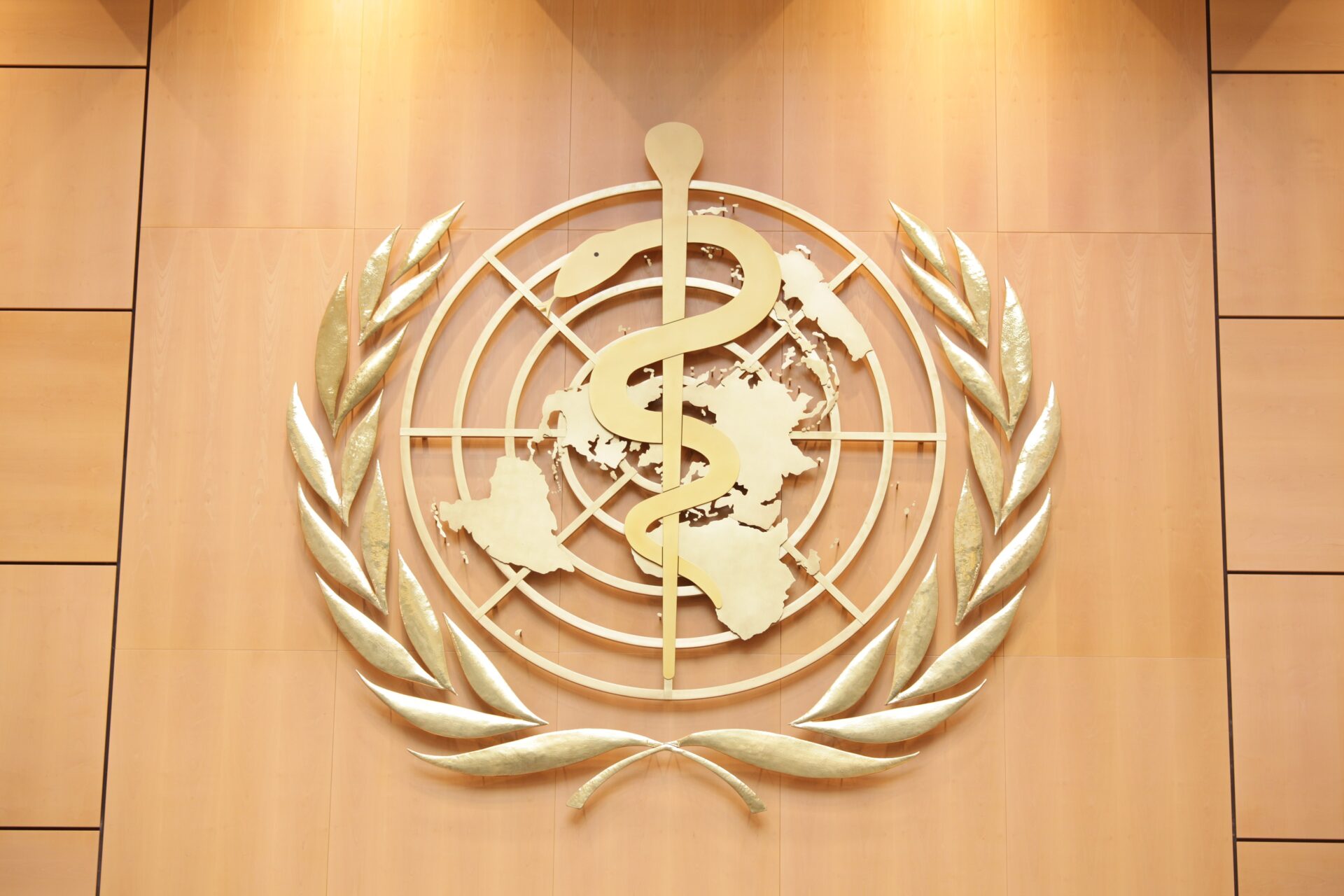In May, delegates from 194 member states, including ministers and high-level officials gather in Geneva for the World Health Assembly. The annual event is the World Health Organization’s supreme decision-making body, where delegates discuss global health issues, set priorities, and coordinate international efforts to address health challenges around the world.
This year, ICARS partnered with the Danish Ministry for the Interior and Health, the Novo Nordisk Foundation, and the AMR Action Fund to organise a side-event focused on ‘Opportunities for further and integrated action on antimicrobial access and stewardship’.
The roundtable event brought together senior level government officials from High-, Middle-, and Low-Income Countries, as well as key stakeholders to highlight the importance of considering both antimicrobial access and stewardship efforts to sustainably address antimicrobial resistance (AMR), with the aim of inspiring countries and stakeholders to take further integrated action that acknowledges both the dire demand for new antimicrobials, alongside the need for robust antimicrobial stewardship to preserve the ongoing effectiveness of, and access to, existing and newly developed drugs.
Erik Brøgger Rasmussen, Ambassador and Permanent Representative of Denmark to the United Nations, welcomed the participants followed by opening remarks by Dr Søren Brostrøm, Director General, Danish Health Authority.
The roundtable discussion included a presentation by Dr Hanan Balkhy, Assistant Director-General for AMR, WHO, and was based on two guiding questions:
- What are the major challenges for sustainably ensuring access to antimicrobials and implementation of antimicrobial stewardships efforts?
- What opportunities are there to strengthen integration of these agendas?

ICARS’ Executive Director, Dr Sujith Chandy contributed to the discussion by drawing on experiences from ICARS’ stewardship projects around the world and highlighting that:
“Acting in silos is not enough, as antimicrobial access and stewardship are highly interdependent. No stewardship means no sustainable access to effective antimicrobials – no access means no foundation for stewardship. To maximize impact, we need the Global North and South to come together, in partnerships across public and private stakeholders, and in the spirit of one health, across sectors and professions.”
John Alter, Head of External Affairs at the AMR Action Fund stressed the need for coordinated action, saying:
“There’s no single solution to the global threat of antimicrobial resistance. It demands coordinated action across countries and across sectors, from improving access and stewardship to enacting policies that encourage investment in this critical field of medicine. We must continue to work together and build on this momentum if we are going to meet the many challenges AMR presents.”
Steffen Pierini Lüders, Senior Vice President at the Novo Nordisk Foundation emphasised the urgent need for incentivising the development of novel and effective antibiotics and ensuring better diagnostic tools:
“A predominant issue in combatting AMR is the lack of commercial incentives to invest in R&D in new antibiotics. Because of a market failure, companies are simply going bankrupt, and the great scientists are finding other areas where they can earn a paycheck. We need to act now and faster to make the private sector work. The high-level income countries have a special obligation and a global responsibility to lead the way in effectively combatting AMR”.
Erik Brøgger Rasmussen, Ambassador and Permanent Representative of Denmark to the United Nations, emphasised the need to engage with multiple stakeholders to achieve impact:
“The threat of AMR is of such magnitude that, to obtain significant impact, a global, multisectoral, whole-of-society perspective is needed. Much has been achieved, but we are far from at the end of the road. Further action must be taken at all levels as well as from a range of stakeholders including the private sector. Which is why I was very happy to see the broad representation of countries and stakeholders at the event hosted by Denmark.”
By sharing experiences across different country contexts, the participants explored potential opportunities for collaboration. Aside from catalysing action, it is the ambition that this roundtable discussion will also feed into international dialogues on the need to strengthen global action on AMR. Outputs from the discussion will include a paper summarizing the main conclusions and perspectives to be taken forward into action-oriented declarations arising from future high-level meetings such as the UNGA 2024 meeting on AMR, the UNGA 2023 meeting on Pandemic Prevention, Preparedness and Response and the UNGA 2023 meeting on Universal Health Coverage.

